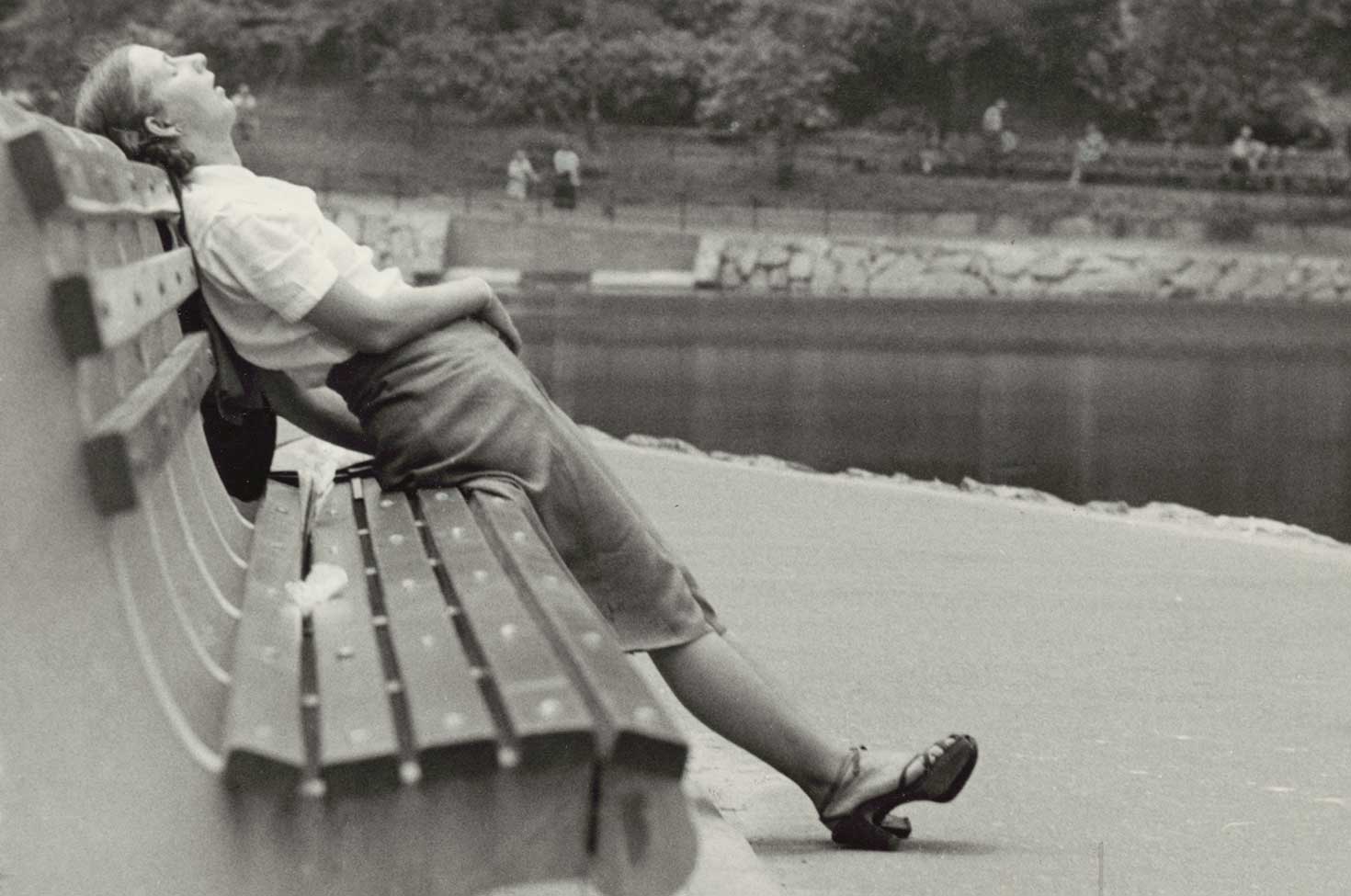
Woman sleeping on a park bench in Central Park, 1952. Photograph by Angelo Rizzuto. Library of Congress, Prints and Photographs Division.
• The history of the asset economy. (The Nation)
• Celebrating the two hundredth anniversary of the birth of Frederick Law Olmsted, codesigner of some of America’s most famous public parks, including Central Park. (New York Times)
• “Anglo-Saxon kings were mostly vegetarian.” (BBC News)
• The political history of camping in the United States. (NewYorker.com)
• Found: a Phoenician necropolis. (The Guardian)
• Why were dance marathons so big during the Great Depression? (JSTOR Daily)
• “Can we preserve ancient monuments without losing sight of what global warming is doing to humans living today?” (The New Republic)
• “Oklahoma passed the nation’s first bill banning teachers from talking about homosexuality in an AIDS sex ed measure in April 1987, and Louisiana followed suit that July. South Carolina passed a ‘Don’t Say Gay’ bill in 1988. Texas and Arizona passed their own in 1991. In total, nine states passed laws banning schools from teaching about ‘homosexuality’ from 1987 to 2001.” (19th News)
• An illustrated history of birthing furniture. (The MIT Press Reader)
• This week in obituaries: Mwai Kibaki, Kenneth Tsang, Orrin Hatch, Orlando Julius, Cynthia Albritton, Rolando Hinojosa-Smith, Guy Lafleur, Mimi Reinhard, Hermann Nitsch, Chris Bailey, Jimmy Wang Yu, David Lea, John DiStaso, Laura Hales, Jim Hartz, Sid Mark, Mikhail Vasenkov, Ursula Bellugi, and Johnnie A. Jones Sr.